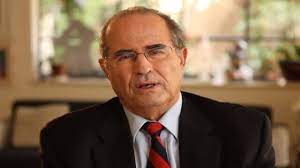JERUSALEM: Shabtai Shavit, the Israeli spymaster who was credited with advancing Israel’s historic peace treaty with Jordan during his term as director of the Mossad intelligence agency, died on Tuesday in Italy. He was 84.
Israeli Prime Minister Benjamin Netanyahu’s office said Shavit died while on vacation in Italy, without specifying a cause of death.
The statement quoted Mossad chief, David Barnea, praising Shavit as “a pillar of the world of operations, intelligence, security and strategy of the state of Israel.”
Shavit led the Mossad from 1989 to 1996, guiding the agency through a critical juncture in Middle East history. He oversaw Israeli operations on foreign soil during the collapse of the Soviet Union, the end of the Cold War and the first Gulf War in 1991.
Over more than three decades in the service, he spent some two years in an intelligence post in Iran, before the Islamic Revolution that transformed Iran from an Israeli ally to its strongest foe.
During his time at the helm, Shavit played an important role in establishing full diplomatic relations with Jordan in 1994 — ending a state of war that had prevailed between the neighbors for nearly a half-century.
The Mossad has a history of targeting and killing scientists developing weaponry seen as a threat to Israel, which apparently continued under Shavit’s watch. In 1990, two Mossad agents in Brussels were widely suspected to have killed Gerald Bull, a Canadian missile engineer who had promised to build a “supergun” for Iraq that could fire huge shells at Tel Aviv. More recently, the Mossad’s hand has been discerned in attacks on Iranian nuclear scientists and installations as Israel seeks to disrupt its nuclear program.
Other operations on foreign soil widely believed to have been carried out by the Mossad during Shavit’s tenure include the mysterious killing of Atef Bseiso, a top intelligence aide to Palestinian leader Yasser Arafat, in Paris in 1992 and a shooting that killed the leader of the Palestinian Islamic Jihad militant group, Fathi Shiqaqi, in Malta in 1995.
Soon after he retired as Mossad chief, Shavit served as CEO of Maccabi Healthcare Services, one of the country’s main health maintenance organizations. In its condolence announcement, the Mossad said Shavit crucially contributed to preserving knowledge of the intelligence agency and its commanders for future generations.
As turmoil over the push by Netanyahu’s government to overhaul the judiciary engulfed the Israeli security establishment earlier this year, Shavit joined several hundred former Mossad employees, including four other former chiefs, in signing a statement in March opposing the government’s plan to weaken the Supreme Court.
He and the other officials said they held Netanyahu “directly responsible for the serious harm” that the overhaul proposal could inflict on Israel’s national security.


